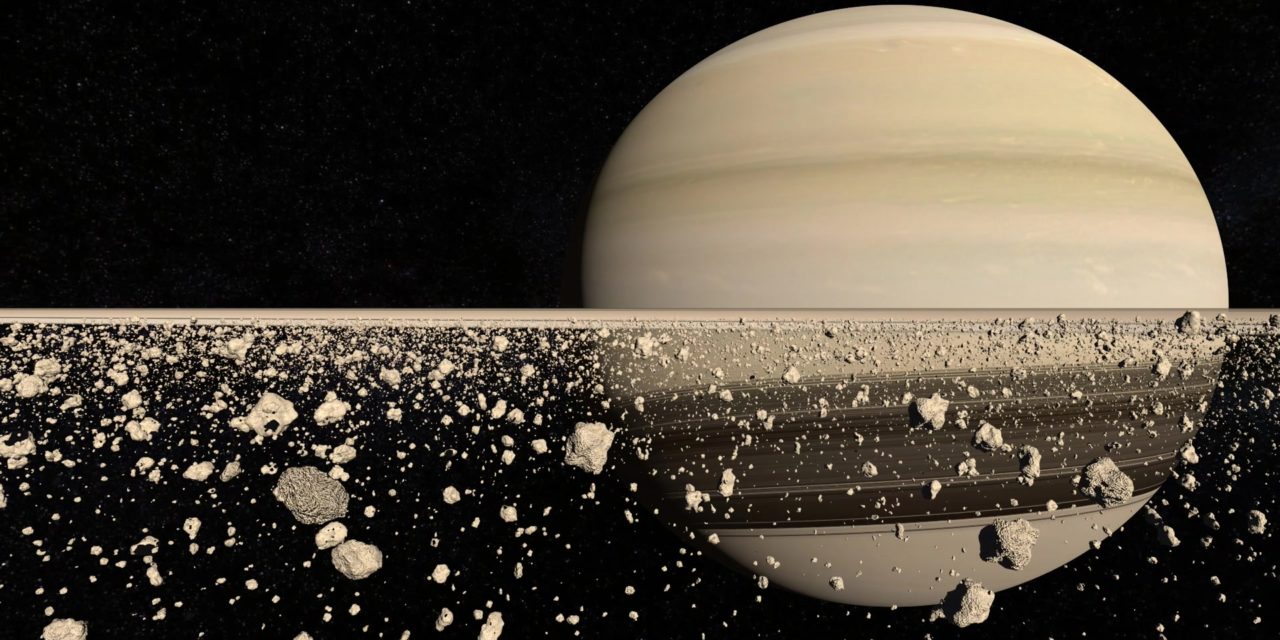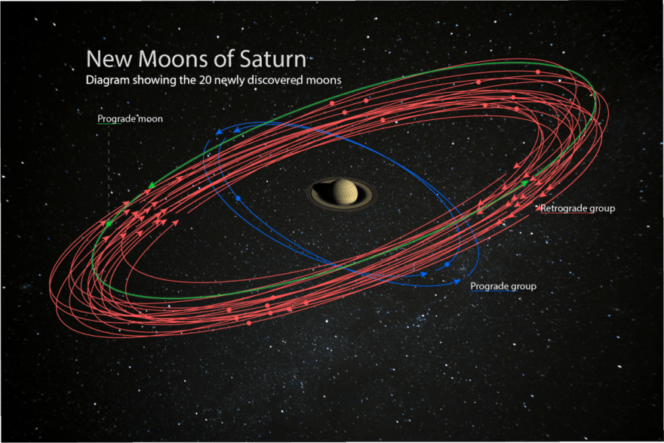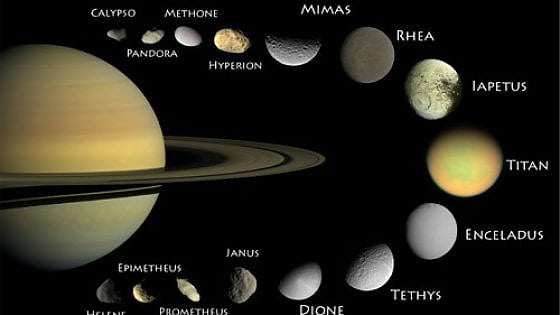© 2000-2023 - Enkey Magazine - All rights reserved
ENKEY SNC - VAT ID IT03202450924 / REA Code CA253701 - Phone. 078162719
Jupiter was unbeaten for the number of satellites, with 79 moons which rotated around it. A new discovery though overthrown it, by revealing 20 new moons around Saturn, that passes, so, at the first position, with a total of 82.
The Jupiter’s moons
Let’s start by talking about the moons of the gaseous giant, Jupiter. For a while the planet ruled undisturbed in the first position, by showing a multitude of small or big satellites that rotate around it. In the 2018 tha last discoveries brought the number of its moons to 79, by further distancing the second one, and since there it stops like that. But the first place is now taking over with just three moons in addition, 82, the Saturn ones.
Besides the most known moons, first of all Europe, Jupiter has an incredible variety of natural satellites divided in regular satellites, medicei and irregular satellites.
The discovery of 20 new satellites of Saturn
Let’s now come back to the planet Saturn, which is the one that incredibly took over the first position to the giant Jupiter. This was possible thanks to the discovery of 20 new satellites.

The study was made by a group of researchers of the Carnegie University, led by Scott Sheppard. All the characteristics of the new moons just discovered are written on the Minor Planet Center, the storage of the International Astronomical Union.
Characteristics and orbits of the new moons
The new satellites have sizes surely reduced, with a diameter around the five kilometers. Seventy of the just discovered satellites follow a retrograde orbit, which means that their movement is opposed to the planet rotation around its axis. The other three, instead, follow the planet in its rotation, by following, so, a prograde orbit.

Two of them spend two years to make their rotation around the planet. While the other prograde moon and the seventy retrograde moons spend three years.
Inuit and the other groups of moons
Furthermore, two of the prograde moons are part of the already known group of satellites, the one that takes the name of Inuit. Going back over the life of these satellites, thanks to the help of a software, they assumed that they were once part of only one object.
Today, the Inuit moons follow an orbit inclined of about 46° and they owned their names from the Inuit myth.

So as well as the two prograde moons even many other new retrograde satellites follow the same orbit of already known groups of satellites and, so, the researchers believe that they were part of a bigger object too.
While about the moons that don’t follow the orbit of no other satellites, the researchers think that they can be the residue of a collision between two big moons, or between a moon and an object which come from another part of the solar system. In this way some of the smallest pieces popped out and started to follow their own orbit.
The same phenomenon can be observed even with the satellites of Jupiter and the hypothesis of the collision is the best explanation even in this case.
Let’s give a name to the new satellites
The most beautiful and exciting part of the discovery of new celestial bodies is the name choice. Which is almost as much important as the choice of a son name. However mostly of the remotest celestial bodies, the ones that orbit outside the solar system, have difficult names with numbers and references to the star or the galaxy, without a real personal identity.
The beauty to discover something new inside our solar system is the possibility, instead, to find the most appropriate name. Because what is inside our solar system means to us much more, is a little bit more our. And so we will never name it, for example, Jupiter 51 b.
It’s for this reason that Sheppard decided to involve everyone in this important decision, by organising an online competition to give a name to the new moons of Saturn.
This post is also available in:
![]() Italiano
Italiano
